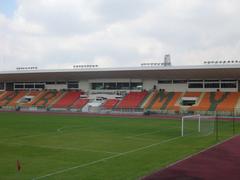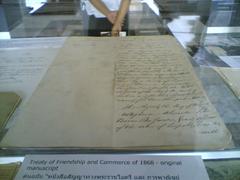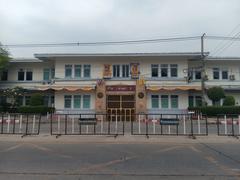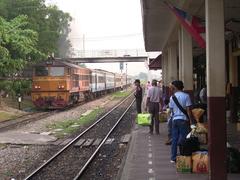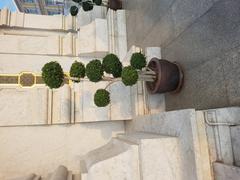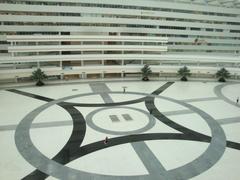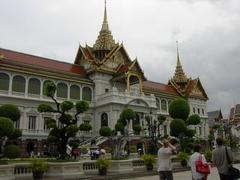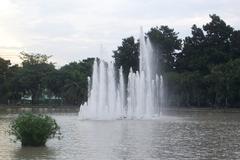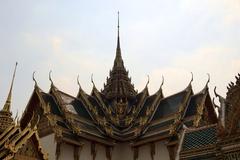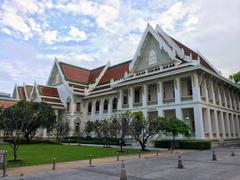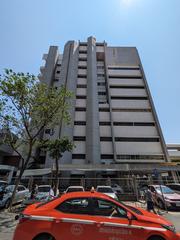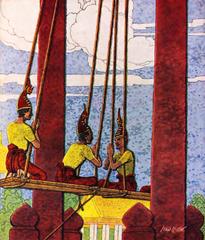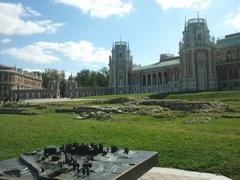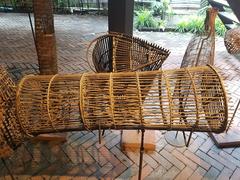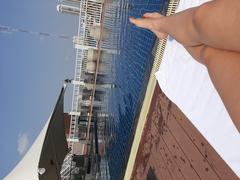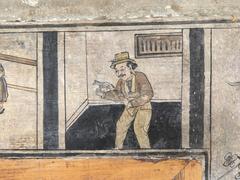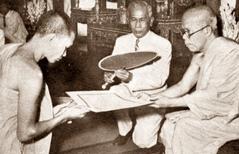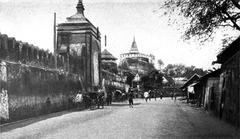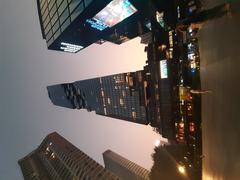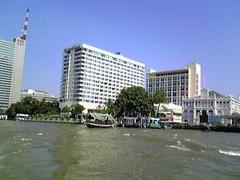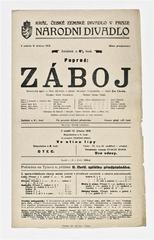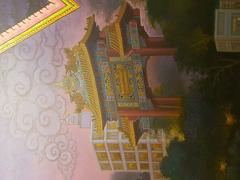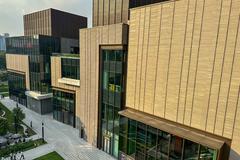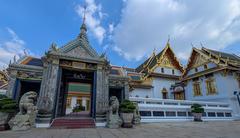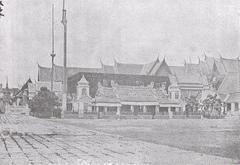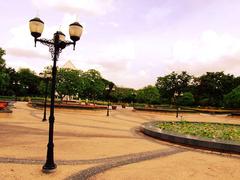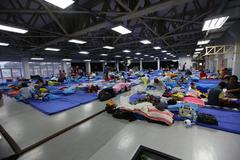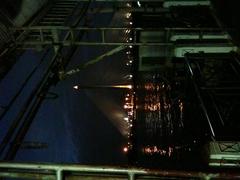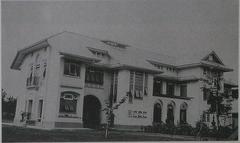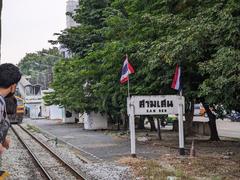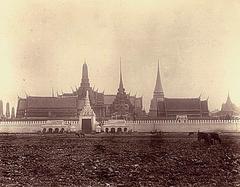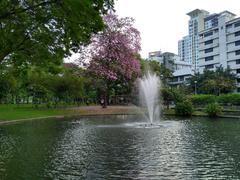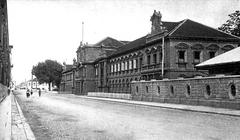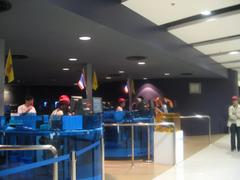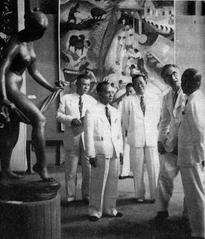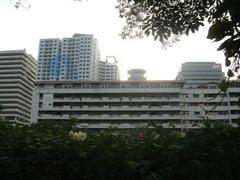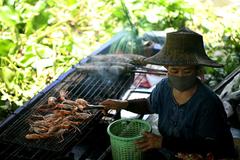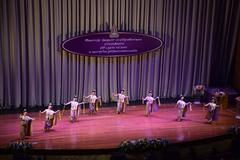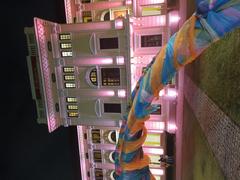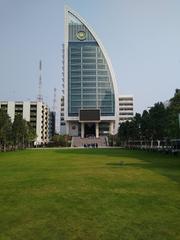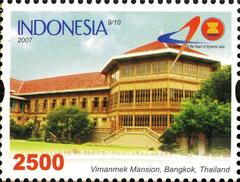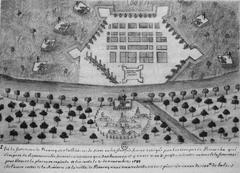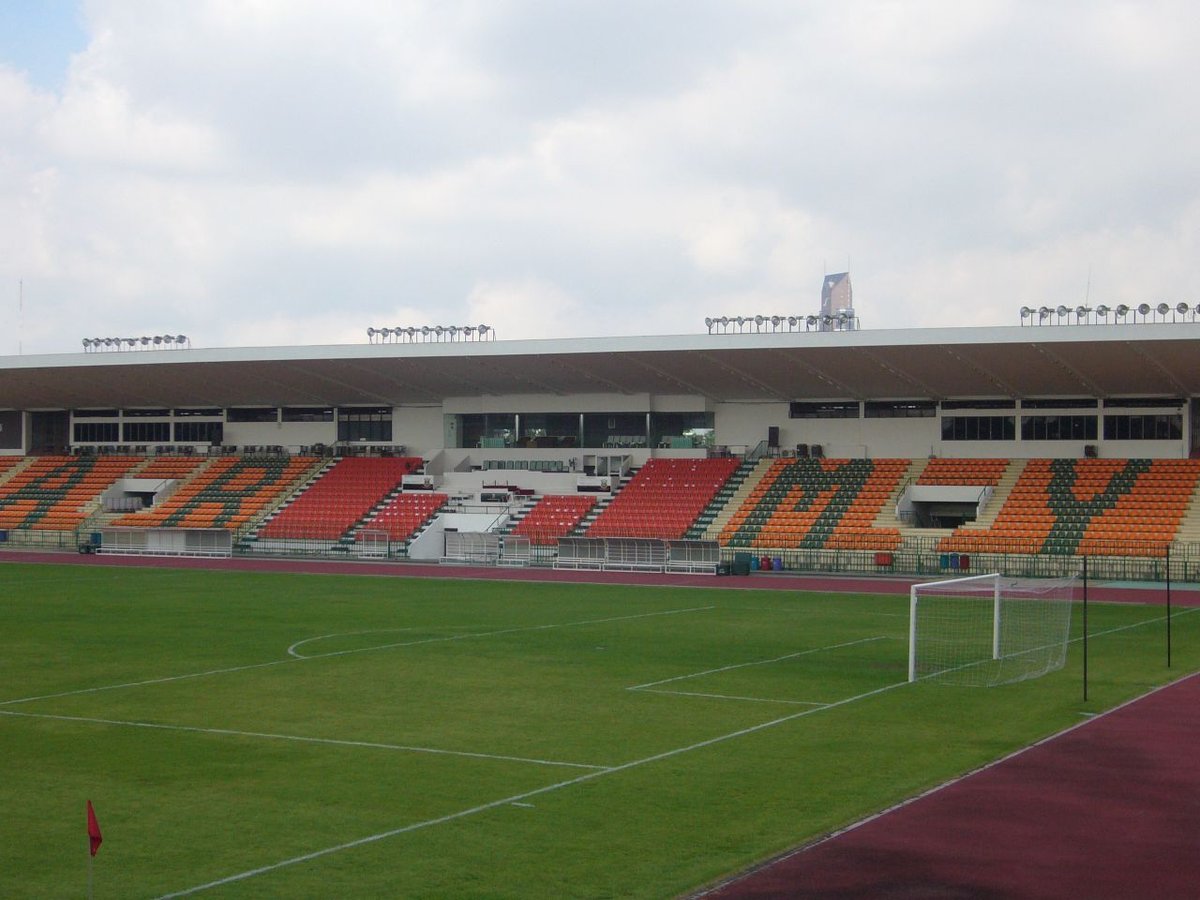
Thai Army Sports Stadium Visiting Hours, Tickets, and Tourist Guide: Bangkok Historical Sites
Date: 15/06/2025
Introduction
Bangkok, Thailand’s bustling capital, boasts some of Southeast Asia’s most historically and culturally significant sports venues. At the heart of this sporting legacy are the Thai Army Sports Stadium and the famous Lumpinee Boxing Stadium. Both venues are deeply intertwined with the nation’s military and sporting heritage, serving as pillars of community pride, athletic development, and cultural preservation. This detailed guide offers everything you need to know to plan a visit—from historical context and cultural significance to practical information about visiting hours, tickets, accessibility, and travel tips.
Whether you are a Muay Thai enthusiast eager to witness the electrifying atmosphere of Lumpinee, a football fan attending a match at the Army Sports Stadium, or a traveler curious about the unique blend of military tradition and Thai sports culture, this article will help you make the most of your Bangkok sports adventure. For authoritative information, consult sources such as Muaythai.com, Nation Thailand, and Football Tripper.
Table of Contents
- Introduction
- Lumpinee Boxing Stadium: Origins, History, and Cultural Significance
- Visiting Lumpinee Stadium: Hours, Tickets, and Tips
- Attractions Near Lumpinee Stadium
- Thai Army Sports Stadium: Overview and Military Heritage
- Visiting Thai Army Sports Stadium: Hours, Tickets, and Accessibility
- Practical Tips for Visitors
- Nearby Attractions and Local Experiences
- Frequently Asked Questions (FAQ)
- Conclusion and Call to Action
- References
Lumpinee Boxing Stadium: Origins, History, and Cultural Significance
Origins and Establishment
Lumpinee Boxing Stadium stands as one of the world’s most prestigious Muay Thai arenas, tracing its roots to the Royal Thai Army’s initiative to promote the sport and foster national pride. Officially opened on December 8, 1956, under the patronage of General Praphas Charusathien, the stadium was intended as a spiritual and cultural landmark, named after Lumbini—the Buddha’s birthplace (World Muaythai Council; Muaythai.com).
The Army Welfare Department managed the stadium, ensuring that proceeds supported army welfare initiatives. Lumpinee soon became the “Mecca of Muay Thai,” hosting legendary fighters and elevating the sport on both national and international stages (Muaythai World).
Evolution and Relocation
Golden Era and Globalization: Lumpinee Stadium’s reputation soared in the late 20th century, with career-defining matches that attracted fighters and fans from around the world. The stadium welcomed international competitors, accelerating the globalization of Muay Thai (Muaythai.com).
Relocation to Ram Intra: Urban development and the need for modernization prompted the stadium’s relocation in 2014 to Ram Intra Road. The new facility, built on the Army Sports Development Centre grounds, features a capacity of up to 9,500 spectators and state-of-the-art amenities, ensuring Lumpinee’s continued legacy (Muaythai World).
Cultural and Spiritual Importance
Lumpinee remains a beacon of Thai cultural identity. Managed by the Royal Thai Army, it preserves the rituals and traditions of Muay Thai, including the Wai Kru and Ram Muay ceremonies. The stadium is also a focal point for the vibrant (and technically illegal) gambling culture that is part of Muay Thai’s authentic experience (Discover Walks; Better Living Asia).
Visiting Lumpinee Stadium: Hours, Tickets, and Tips
Visiting Hours
- Events: Typically held Tuesday, Friday, and some Saturday evenings.
- Doors Open: Around 6:00 PM.
- Fights Begin: Approximately 7:00 PM, ending around 11:00 PM.
- Note: Always check the official schedule for up-to-date event times.
Ticket Information
- Ringside: 1,500–2,000 Baht.
- Upper-level: 800–1,000 Baht.
- General Admission (Thai nationals): From 200 Baht.
- Where to Buy: At the box office on event days or online through authorized sellers. Early purchase is recommended for popular bouts.
Travel Tips and Dress Code
- Dress Modestly: Long pants and sleeved shirts are recommended; avoid shorts and sleeveless tops.
- Best Times to Visit: Major fight nights for top fighters and vibrant crowds.
- Arrive Early: For better seating and to experience pre-fight rituals.
- Accessibility: Wheelchair-friendly facilities are available; contact the stadium in advance for assistance.
Guided Tours and Special Events
While primarily a live event venue, some tour operators offer behind-the-scenes tours and Muay Thai cultural briefings. International tournaments and special events are also occasionally scheduled (Muaythai.com).
Attractions Near Lumpinee Stadium
- Chatuchak Weekend Market: One of the world’s largest markets—perfect for shopping and street food.
- Bang Khen Museum: Learn about local history.
- Local Temples and Parks: For authentic Thai culture and relaxation.
These sites provide additional cultural context and round out the Lumpinee experience.
Thai Army Sports Stadium: Overview and Military Heritage
Overview and History
Located in Bangkok’s Din Daeng district, the Thai Army Sports Stadium (Royal Thai Army Stadium or Makawan Stadium) was established in 1970 to promote physical fitness and teamwork among military personnel, while serving as a public venue for football and athletics (Football Tripper). The military’s stewardship extends to Lumpinee Stadium, highlighting the army’s pivotal role in shaping Thailand’s sporting landscape (Fighters Vault).
Community and Identity
The stadium was home to Army United F.C. until 2019 and continues to host Thai football matches, regional tournaments, and multi-sport events. With a capacity of 20,000, it offers intimate and lively match-day experiences, blending military discipline with local fan passion (Tourist Bangkok; Thailand Redcat).
Architecture and Facilities
- Design: Rectangular pitch with athletics track and terraced seating.
- Facilities: Four tennis courts, four petanque courts, boxing center, and athlete’s residence.
- Events: Football, athletics, military parades, and community gatherings.
Visiting Thai Army Sports Stadium: Hours, Tickets, and Accessibility
Visiting Hours
- General Opening: 8:00 AM–6:00 PM daily.
- Event Days: Hours may vary—check the latest schedule or contact the stadium.
Ticket Information
- Prices: 100–300 Baht (regular events); up to 500 Baht for major fixtures.
- Where to Buy: At the stadium ticket counters on match days. Online options are limited, so arrive early for popular events (Tourist Bangkok).
Accessibility
- Wheelchair Access: Basic facilities, with ramps but limited elevator access.
- Transport: Taxis are most convenient, with fares from 60–100 Baht from central Bangkok. Buses service Vibhavadi Rangsit Road.
Practical Tips for Visitors
- Arriving: Use taxis or ride-hailing apps (Grab). BTS Sanam Pao station is a 15-minute walk away; bus options are available.
- Weather: June is hot and humid with potential rain—bring sun protection and rain gear.
- Dress Code: Comfortable, breathable clothing and sturdy shoes.
- Security: Expect bag checks; keep valuables secure.
- Language: Basic English spoken by some staff; signage is primarily in Thai.
- Food and Drinks: Local stalls offer Thai street food and beverages, including Chang beer.
Nearby Attractions and Local Experiences
- Victory Monument: Major landmark and transport hub with surrounding eateries.
- Chatuchak Weekend Market: Vast market for shopping and food.
- The Grand Palace & Wat Phra Kaew: Accessible via BTS and river taxi.
- Lumpini Park & Queen Sirikit Park: Green spaces for relaxation.
- CentralWorld, Siam Paragon, IconSiam: Premier shopping and entertainment.
- Night Markets: Ratchada Train Market for food and shopping.
Frequently Asked Questions (FAQ)
Q: What are the stadiums’ visiting hours?
A: Lumpinee Stadium typically opens at 6:00 PM on event nights. Thai Army Sports Stadium is open 8:00 AM–6:00 PM, with variations on event days.
Q: How do I buy tickets?
A: Purchase at the stadium box office or online for Lumpinee events. For Army Sports Stadium, tickets are mainly available at the venue on match days.
Q: Are the stadiums accessible?
A: Both offer basic accessibility; contact ahead for assistance.
Q: Are there guided tours?
A: Official tours are rare but may be available through local operators.
Q: What attractions are nearby?
A: Chatuchak Market, Victory Monument, The Grand Palace, and local parks.
Q: What should I wear?
A: Modest, comfortable clothing is best; bring rain protection in June.
Conclusion and Call to Action
The Thai Army Sports Stadium and Lumpinee Boxing Stadium are living monuments to Thailand’s rich sporting and military history. Their unique blend of tradition, community, and modern amenities makes them essential stops for sports enthusiasts and cultural travelers alike. Enjoy unforgettable matches, witness time-honored rituals, and explore the vibrant neighborhoods that surround these iconic venues.
To maximize your experience, check event schedules, purchase tickets in advance, and explore nearby attractions. Download the Audiala app for the latest updates, exclusive travel tips, and more Bangkok destination guides. Follow us on social media and explore related articles to deepen your understanding of Bangkok’s sporting and cultural landscape.
References
- Lumpinee Stadium Visiting Hours, Tickets, and History: A Comprehensive Guide to Bangkok’s Iconic Muay Thai Venue (Muaythai.com)
- Lumpinee Stadium History (World Muaythai Council)
- Lumpinee Stadium Overview and Events (Muaythai World)
- Thai Army Sports Stadium Overview (Football Tripper)
- Muay Thai Stadiums in Thailand (Fighters Vault)
- Thai Football in Bangkok (Tourist Bangkok)
- Royal Thai Army Stadium Details (Trek Zone)
- Thailand National Identity and Muay Thai (Nation Thailand)
- Sports Tourism in Thailand (Nation Thailand)
- Bangkok’s National Sport Facts (Discover Walks)
